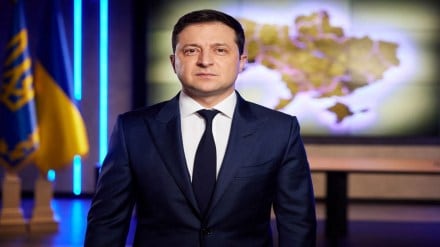By Dr Grant Dawson
Tenacious Ukraine -aided with Western weapons, intelligence, and training -may defeat Russia and liberate all its territory. This would be viewed as a just outcome, and a vindication of the US-led West against an authoritarian revisionist in Russia.What has been achieved so far in resisting Russia’s invasion is inspiring, but we must not forget that foreign policy is irrefutably an expression of perennial drives in human nature, specifically the aspiration for power. In short, Western success in Ukraine – not just defeat – could have profound, and potentially destabilizing, ramifications for global politics.
The West’s Foreign policy is galvanized by “groupist universalism”; that is, the elevation and extension of liberal-democratic principles, values, and institutions – its domination – everywhere.At the risk of over-simplification, China is its strategic competitor, Russiaa lesser challenger over the near-term.Total victory for Ukraine is uncertain, but if achieved it could give the already righteously strident West dramatic new impetus to struggle for power against all comers.
It is important in this light to reflect on what the West is doing in Ukraine, and what it is trying to achieve. Three points of crucial importance stand-out: 1) theUS’ lust for power being unleashed after Russia’s will is broken;2) the EU / the West’s “neo-empire”being extended eastward; and 3) the US-led impositions producing a backlash against the West as a group or bloc.
1) Victory in Ukraine risks making the US-led West even more self-assured and hubristic. The delight and thrill within the West as NATO ratchets-up the physical security threat on Russia is a case in point. It is evident that many are enjoying Russia’s dire situation and isolation, are satisfied and vengeful about the prospect of forcing President Vladimir Putin’s government to accept it was wrong from the beginning, including its claims about Western impositions.
2) The US-led West is completely unable to also see in itself the same urge as their autocratic rivals to dominate and to aspire for power. Liberal politics do not cause war, these countries believe, they cause peace. The state of peace rationally demands that the West continue to assert its values and principles, and where necessary defend and extend them against autocratic aggression.
US exceptionalism and universality are bound and pursued together.Does the US-led theWest know where to stop? Can it stop? Or does it refuse to even recognise a stopping point as unacceptable, not just in foreign policy terms, but on a more elemental psychological-emotional level, because that would mean the limit or “end” to the West.
3) The West says the global extension of democracy is a common good, and slyly pretends this is not related to interests or power competition. However, when the West had to choose between democracy and stability in the past, it frequently sided with the loyal dictator. The not uncommon view among the non-western world that the Ukraine war is more a conflict between Russia and the West again suggests that its foreign policy is generally perceived to be self-interested.
The West may try to deny it, but power struggle is the basis of political reality on the world stage. The West’s promotion of liberalism has taken on a groupist and ideological quality for this reason. In the face of this,Putin says he is leading a global campaign against Western domination. The muted condemnation of Russia among rising great or regional powers, such as China, India, Saudi Arabia, and South Africa, suggests that his call has some resonance.
These are hard insights that must be taken on board if the US-led West is to devise wiser, more prudent foreign policies now and in the future. They are not “Kremlin talking points.” They are pieces of the truth. Or, if these do resemble some of Putin’s points, the ones we usually get are US President Joe Biden’s. Remember there are two sides to the Ukraine war.
Author is Assistant Professor, School of International Studies, Faculty of Humanities and Social Sciences, University of Nottingham, Ningbo, China.
Disclaimer: Views expressed are personal and do not reflect the official position or policy of Financial Express Online. Reproducing this content without permission is prohibited.
